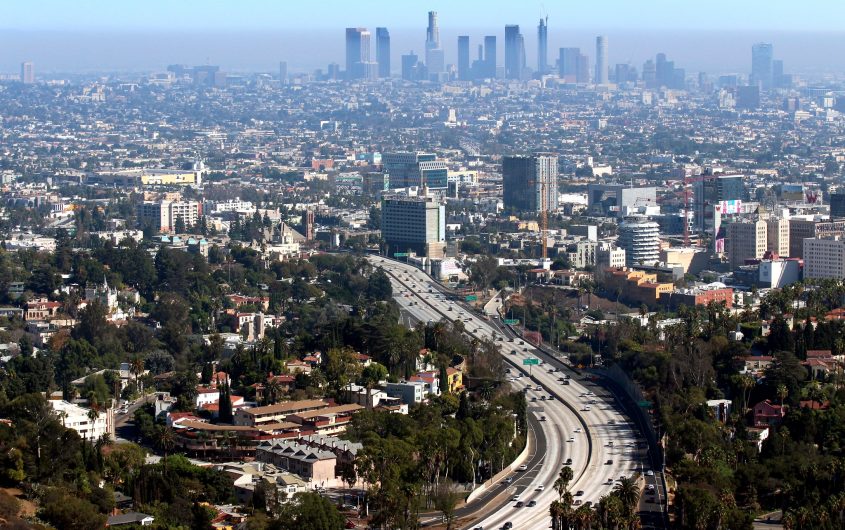
Prayitno via Flickr
The Unexpected Environmental Consequences of the Coronavirus Pandemic

Eric Langenbacher
Senior Fellow; Director, Society, Culture & Politics Program
Dr. Eric Langenbacher is a Senior Fellow and Director of the Society, Culture & Politics Program at AICGS.
Dr. Langenbacher studied in Canada before completing his PhD in Georgetown University’s Government Department in 2002. His research interests include collective memory, political culture, and electoral politics in Germany and Europe. Recent publications include the edited volumes Twilight of the Merkel Era: Power and Politics in Germany after the 2017 Bundestag Election (2019), The Merkel Republic: The 2013 Bundestag Election and its Consequences (2015), Dynamics of Memory and Identity in Contemporary Europe (co-edited with Ruth Wittlinger and Bill Niven, 2013), Power and the Past: Collective Memory and International Relations (co-edited with Yossi Shain, 2010), and From the Bonn to the Berlin Republic: Germany at the Twentieth Anniversary of Unification (co-edited with Jeffrey J. Anderson, 2010). With David Conradt, he is also the author of The German Polity, 10th and 11th edition (2013, 2017).
Dr. Langenbacher remains affiliated with Georgetown University as Teaching Professor and Director of the Honors Program in the Department of Government. He has also taught at George Washington University, Washington College, The University of Navarre, and the Universidad Nacional de General San Martin in Buenos Aires, Argentina, and has given talks across the world. He was selected Faculty Member of the Year by the School of Foreign Service in 2009 and was awarded a Fulbright grant in 1999-2000 and the Hopper Memorial Fellowship at Georgetown in 2000-2001. Since 2005, he has also been Managing Editor of German Politics and Society, which is housed in Georgetown’s BMW Center for German and European Studies. Dr. Langenbacher has also planned and run dozens of short programs for groups from abroad, as well as for the U.S. Departments of State and Defense on a variety of topics pertaining to American and comparative politics, business, culture, and public policy.
__
The coronavirus pandemic is killing tens of thousands of people across the world and gravely disrupting life almost everywhere. Much of China has been shut down since January, European countries for weeks now, and the United States—which has been slammed as of late March with almost 200,000 confirmed cases (and going on 4,000 deaths)—is increasingly coming to a halt with many jurisdictions already having issued shelter-in-place orders. The medium and long-term consequences are difficult to predict with any certainty, but a severe economic recession is likely. How this dire situation will affect politics and other areas is difficult to predict. It does seem that many countries are experiencing a “rally around the flag” effect, boosting incumbent leaders. Certainly, this has been the case with President Donald Trump in the U.S.
As many have observed, this is also true in Germany with prominent politicians like Angela Merkel, Jens Spahn, Markus Söder, and even SPD finance minister Olaf Scholz rapidly gaining popularity. Moreover, the German public appears overwhelmingly satisfied with the governmental response and is rewarding the governing parties, especially the CDU/CSU, which is up 5 to 9 percent compared to a month ago. Even the hitherto hapless SPD is up 2-5 percent. Meanwhile, as I wrote last week, the AfD is down 3-5 percent and, perhaps a little more surprisingly, the high-flying Greens are down 1-5 percent.
It is unlikely that the Greens, who have not been in government at the federal level for fifteen years and especially the right-wing AfD will benefit from any policy missteps or a deterioration of the overall health situation.
One should not over-interpret short-term polling fluctuations, especially in such a rapidly changing situation. True, Germany has been able to keep the number of deaths low so far (approximately 700 at the end of March), but this could and likely will change at some point as the health care system reaches its capacity. There are already reports about a looming shortage of personal protection equipment, personnel, hospital beds, and ventilators. Still, it is unlikely that the Greens, who have not been in government at the federal level for fifteen years and especially the right-wing AfD will benefit from any policy missteps or a deterioration of the overall health situation. Simply put, neither party has much of anything constructive to contribute to the debate or the actual response at this point in time.
One unexpected consequence of the horrible pandemic has been the environmental impact. Many readers have seen the maps published, showing a massive decline in air pollution in some of the hardest hit countries and regions. In China, for instance, nitrogen dioxide (NO2)—a greenhouse gas associated with vehicle emissions and some industries—has declined 40 percent since the country was essentially shut down in January. Italy has witnessed a similar decline, especially in the hard hit industrialized north. One observer even remarked that the region will have the cleanest air ever. Milan has recorded a 25 percent decline in the pollutant. San Francisco, an American city among the first to be shut down, experienced declines of 16 percent in carbon monoxide and 20 percent for NO2.
See a real-time air quality map via Berkeley Earth.
Now, Germany, having begun the process of shutting down the country after Italy and not as comprehensively, is also starting to see a marked decline in air pollution, particularly from NO2. Some analysts are even saying that the country will meet and even exceed its climate goals for 2020, reducing greenhouse gas emissions 40-45 percent compared to 1990 levels. Before the pandemic, it was widely thought that Germany would not quite achieve this goal despite the considerable investments in green power and the ambitious Energiewende.
These positive environmental trends—incidentally, visible after most modern recessions like the Great Depression or other extreme events like the two oil shocks of the 1970s—will have immediate beneficial consequences on public health. There is much evidence that living in communities with poor air quality (similar to those who smoke) can increase the chance of catching, as well as the severity of the COVID-19 disease. Thus, better air quality is one of the unintended beneficial effects of the pandemic-inspired shutdowns that will benefit the health of many people. Moreover, Stanford professor Marshall Burke estimates that after two months of shutdown in China the improved air quality has saved as many as 75,000 additional lives (especially children under 5 and seniors over 70). No one is saying that there are not horrible consequences—death, recession—from the coronavirus pandemic or that there is a silver lining. Rather, there are also a variety of unpredictable and complex effects.
People will be more concerned with regaining their standard of living and taking those delayed holidays than engaging in the self-discipline and behavioral modifications necessary to actually achieve environmental goals.
And this brings us back to politics in Germany. The rally-around-the-flag effect, coupled with rational leadership and high state capacity, helps to explain why the governing parties in the grand coalition are gaining support and opposition parties are less popular. Regarding the Greens and their signature environmental policy agenda, fears are already being voiced that the pandemic will reduce support for these goals in the foreseeable future. Simply put, climate change, environmentalism, and green technology will move toward the bottom of the political agenda. People will be more concerned with regaining their standard of living and taking those delayed holidays than engaging in the self-discipline and behavioral modifications necessary to actually achieve environmental goals.
Similar to other economic crises in recent history, it could take several years to meet and exceed 2019 emissions levels, giving the electorate a false sense of progress. There could be a shift away from people using more environmentally-friendly modes of public transportation, which have been considered unsafe during the pandemic. There could be a more permanent shift toward greater use of private automobiles. (On the other hand, we might witness a more permanent decline in airplane travel).
In sum, after the pandemic is over, it could likely be even more challenging to keep climate and environmental issues on the political agenda. Parties like the Greens pushing such issues could lose support. Certainly, the 20-23 percent the party was enjoying in the polls will be a memory. In fact, they could be back around the 9 percent they achieved in the 2017 Bundestag election. This possible scenario might be the most unexpected consequence of them all.








